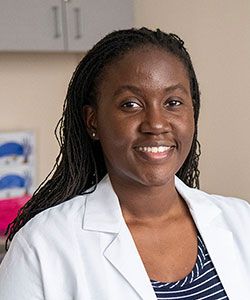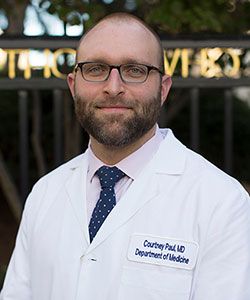Did you know that international medical students and graduates can apply for the Residency Program at the George Washington University (GW) School of Medicine and Health Sciences (SMHS)? The International Sponsored Residency Program is a graduate medical training initiative designed to offer a strong clinical experience, along with a foundational overview of the American medical system as practiced at SMHS. Residents train alongside their American colleagues in an internationally renowned teaching hospital known for its interdisciplinary approach to education and research, as well as the diagnosis and treatment of a diverse patient population.
GW Residency Program Directors work closely with International Medicine Programs (IMP) to recruit the most qualified international residency applicants. A key component of this recruitment strategy is the timely and transparent communication of updates to the residency application process, ensuring prospective candidates have access to the latest information.
Important Updates for the 2026 Application Cycle
Several significant changes are being introduced during the 2026 application cycle. Candidates applying to Emergency Medicine or Obstetrics and Gynecology must now submit their applications through Residency CAS, as both specialties will no longer accept submissions via the Electronic Residency Application Service (ERAS).
In addition, the Educational Commission for Foreign Medical Graduates (ECFMG) has transitioned its portal to MyIntealth. Physicians pursuing ECFMG certification, applying to U.S. graduate medical education, or seeking J-1 visa sponsorship must now do so using their MyIntealth account. New applicants should follow the setup instructions provided on the MyIntealth website, while existing applicants have had their ECFMG accounts automatically transferred to the new platform.
Another change, originally introduced in 2020 and increasingly adopted this year, applies specifically to the Internal Medicine Residency Program. Applicants must now submit one of the three required ERAS letters of recommendation in the form of a structured letter of evaluation (SLOE), also referred to as a structured evaluative letter, when applying to either categorical medicine or primary care tracks. According to the Alliance for Academic Internal Medicine, which establishes the guidelines for these letters, a SLOE “contains standardized national assessment data, local data, and information on the cognitive and non-cognitive skills that are important to professional development.” More information, including frequently asked questions and templates, can be found on the AAIM website. It is important to note that this requirement does not currently apply to international medical graduates applying through the International Sponsored Residency Program.
Meet the Program Leaders


Damali Nakitende, MD, and Courtney Paul, MD, FACP, are among the many program directors who help lead GW’s residency programs and guide candidates through the application cycle.
Nakitende joined GW in 2019 and currently serves as the Program Director of the Department of Emergency Medicine Residency Program. Since 2013, IMP has supported more than 20 international sponsored residents in this program. According to Nakitende, GW’s Emergency Medicine Residency Program welcomes residents from a variety of international backgrounds.
“Their life and educational experiences enable them to contribute a broad range of expertise to both the clinical and learning environment,” she says. “These trainees have made significant contributions during their time in the program and have gone on to make meaningful contributions within the field of emergency medicine. These trainees strengthen our program and create opportunities for international collaboration.”
Paul, an associate professor of medicine at GW SMHS and Program Director of the Department of Internal Medicine Residency Program, joined GW after completing his internal medicine residency at the university in 2013. He also mentors fellows in the IMP Medical Research Fellowship Program.
Paul emphasizes the importance of diversity in medical education and believes that cultivating a well-rounded residency class helps build a physician workforce equipped to care for a broad spectrum of patients.
“By recruiting and training residents from different backgrounds, cultures, places, and experiences,” he explains, “it allows us to learn from each in other in a more robust way to grow as individuals, address our internal biases and provide more comprehensive care to our patients.”